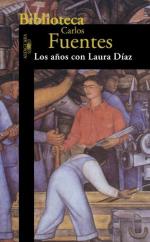|
This section contains 393 words (approx. 2 pages at 300 words per page) |

|
[Fuentes' scenes in Burnt Water] draw vitality partly from their vivid sense of place: a Mexico City sprawling and ugly, corrupt and provincial, destroyed by, and destroying its people. The stories are mined from various literary veins, of which the richest by far is a closely observed social realism.
That is the mode, for instance, of "The Son of Andrés Aparicio." Bernabé, the main character, lives in a district of makeshift huts, a barrio so tenuous that it lacks even a name. He quits school and becomes a street hustler, winding up as a thug for a reactionary political gang. Life on the margin—economic and emotional—was never made more real, and persuasive connections are drawn between such a life and its political consequences.
But even into this story, so largely successful by any standard, there enters an element that—I propose—the Latin Americans like...
|
This section contains 393 words (approx. 2 pages at 300 words per page) |

|


